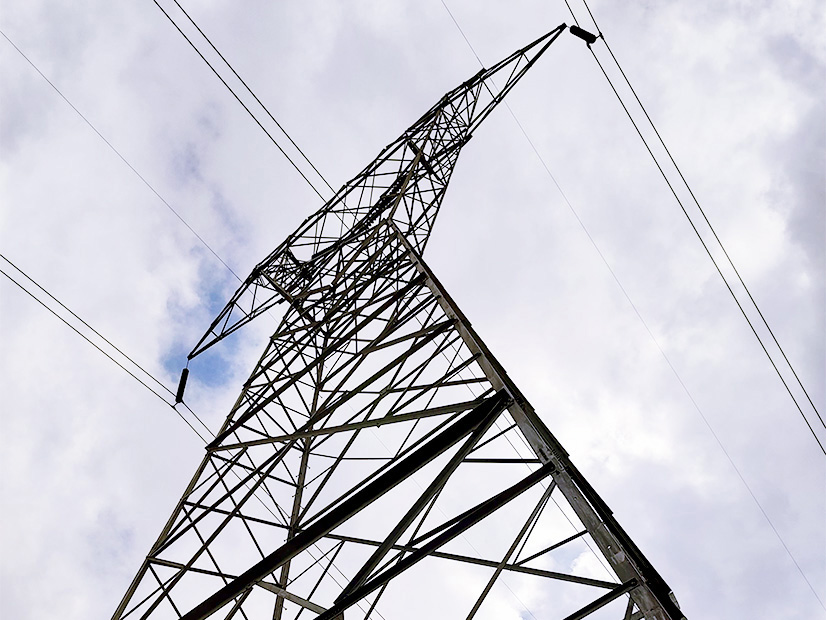FERC on Friday granted PJM’s request to terminate the membership of Hill Energy Resource & Services following the company’s failure to pay several invoices for financial transmission rights transactions on time in 2022 (ER23-423).
PJM declared Hill to be in default on its credit obligations three times in January 2022 totaling more than $18 million, as well as being in default on five payments between January and February totaling $4,301,233.96, according to the RTO’s filings.
The company argued that PJM’s approval of the Lanexa-Dunnsville transmission line into Virginia’s Northern Neck peninsula led to volatile pricing in the region, compounded by tariff violations that Hill alleged PJM committed by issuing collateral calls and subsequently preventing the company from liquidating FTR positions. (See PJM Weighs Options on Hill Energy FTR Default.)
“Essentially, PJM took actions that resulted in abnormal market conditions, those actions led to unjust and unreasonable rates, and PJM now asserts that Hill Energy’s failure to post collateral for the unjust and unreasonable rates is a legitimate basis upon which to terminate Hill Energy’s membership,” Hill stated in its protest. The company did not provide comment on the order Monday.
After work began on the Lanexa-Dunnsville line in January 2022, Hill said prices began fluctuating between the energy offers of the limited number of combustion turbines sited on the peninsula and the $2,000/MWh transmission constraint penalty factor (TCPF), leading to “substantial losses leading to payment defaults that otherwise would not have occurred.” It argued that given the unique circumstances — which led to a separate PJM stakeholder process and FERC filing to permit the RTO to temporarily suspend the TCPF in the region — a permanent termination of the company’s membership was not warranted. (See FERC Approves Pause of PJM Tx Constraint Penalty Factor in Va.)
“Absent the application of the TCPF and the resultant unjust and unreasonable rates, Hill Energy believes it would have had positive returns or much smaller and manageable losses, and defaults likely would not have occurred,” Hill’s filings say.
The protest also argued that that PJM’s first $921,500 collateral call on Jan. 11, 2022, constituted a tariff violation, citing section VI.C.7, which states that the RTO could only declare a credit default after a market participant failed “to satisfy a request for collateral for two consecutive auctions of overlapping periods, e.g., two balance of planning period auctions, an annual FTR auction and a balance of planning period auction, or two long-term FTR auctions.”
The collateral call created a “cascading effect” once the company did not supply the additional funds by leading PJM to revoke the company’s ability to sell open FTR positions and prevent it from accessing market data to continue mitigating its obligations. The company stated that by liquidating open positions, it aimed to reduce its collateral requirement under section VI.C.7, but that action was not immediately taken by PJM after the company made its request. The third collateral call on Jan. 13 for $17 million “crippled” the company’s operations, as it believed it was required to first pay its collateral before addressing invoices.
“The timely sale or liquidation of these positions would have reduced its collateral requirement, thereby allowing Hill Energy to pay its January and February 2022 invoices on time, avoiding any payment defaults,” the company said.
Responding to the protest, PJM stated that section VI.C.7 is limited to particular FTR auctions, rather than general credit defaults and is not applicable to Hill’s circumstances. It described the issues raised by the company as “attempts to confuse the issues and raise disputes that do not stay PJM’s obligation to terminate Hill Energy’s membership.”
PJM also said that any appeals to a membership termination must be done through its dispute resolution process, although the initiation of an appeal does not stay the ability to seek termination. Though Hill added an alternative request to its protest asking for the commission to consider instead approving a suspension of its membership while it engaged in that process, the order did not address the request.
In approving the request to terminate Hill’s membership, FERC focused on the five invoices the company failed to pay between Jan. 25 and Feb. 23, finding that the company did not provide any tariff provisions supporting its case for excusing its nonpayment. Provided that is reason enough for termination, the commission said it does not need to address whether PJM followed its tariff in issuing the collateral calls. Responding to the company’s argument that it would have been able to use revenues from its sell-only FTR bids to pay its invoices if PJM had submitted them when originally requested, the commission said it found that to be “speculative and uncompelling.”


